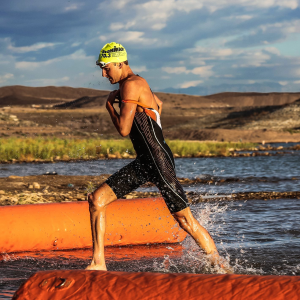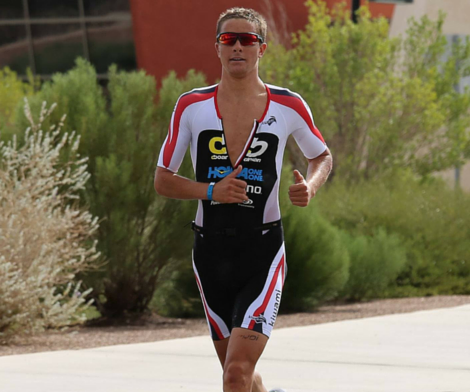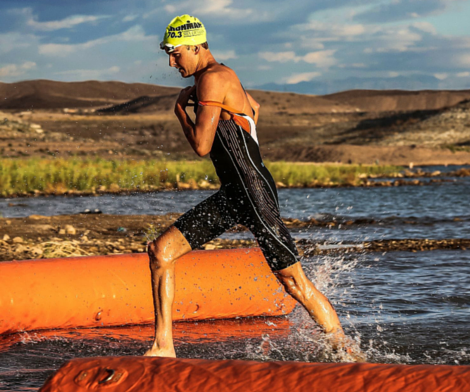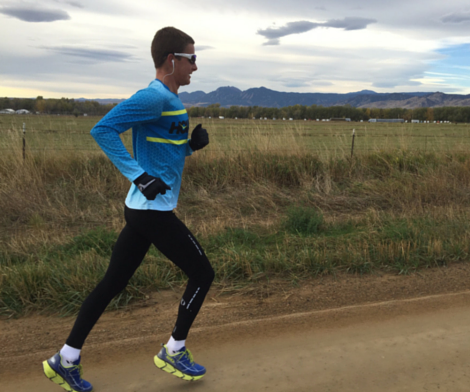
Many athletes fall in love with triathlon because success is often directly correlated with hard work. SaltStick-sponsored athlete Drew Scott is no exception, and his triathlon story reminds athletes that in endurance sports, what matters is showing up and training hard.
In this blog post, we’d like to share Drew’s background with you, as well as his advice for training, nutrition and motivation. We’re proud to sponsor Drew, and we know that our readers will be able to gain some helpful tips that they can apply to their own endurance performances.
Tweet this post: Life as a Professional: Get to Know SaltStick-Sponsored Athlete @DrewScott_: http://bit.ly/1RSM8lL via @SaltStick #Triathlon #DrewScottTri
If you enjoyed learning about Drew, be sure to send him a shout out through social media by clicking on one of the links at the bottom.

Keep reading all the way to the bottom! As a thank you to our readers, we’re offering a giveaway of our new product, SaltStick Fastchews. Details to enter are below.
*For other stories of sponsored athletes, check out our posts on Michelle Barton, Lauren Goss and Katie Spotz.
Drew’s journey into triathlon:
While growing up in Boulder, Colo., Drew was always involved in sports, which included swimming, soccer and running. Drew also participated in Nordic skiing starting at age 10, and he competed as a Nordic skier for two years at Montana State University.
However beginning in high school, Drew’s focus grew to include triathlon. This focus continued to shift away from skiing when, in 2011, he moved back to Boulder from MSU, and competed for the collegiate triathlon team at the University of Colorado while he finished his degree. That year ended in a 10:12 racing time at the Ironman World Championships, despite two flat tires and a broken hand. Although Drew raced as an amateur, this result inspired him to try and make a career as a professional triathlete.
After a year and a half of racing in the amateur ranks — which included several race wins — Drew turned pro in 2013, focusing on non-drafting olympic distance and 70.3 races. Since then, he has won several races, including the 2014 New Orleans 5150 and Silverman 70.3, as well as stood on the podium of several more. (Check out all of Drew’s races and results on his website here.)
Throughout his triathlon career, Drew says his dad, six-time Ironman World Champion Dave Scott, has been his biggest mentor. Dave coached Drew for his first few years in triathlon, and Drew attributes most of his triathlon knowledge to his dad.
“Most of the knowledge I have in this sport I have learned from my Dad and he helped guide me when I made the jump into trying to turn triathlon into a career,” Drew says.
On training:
Having lived in Boulder for most of his life, Drew has been constantly surrounded by endurance sports. Boulder is the training base of many of the top long-distance athletes in the world, including Three-time Ironman World Champions Craig Alexander and Mirinda Carfrae, as well as other big names, such as Tim O’Donnell and Greg and Laura Bennett. Growing up around these athletes has allowed him to see first hand what it takes to be at the top of the sport.
“The level of dedication those athletes have towards the sport is pretty relentless,” Drew says.
Triathlon is a tough sport, but Drew says the hard work is what pushes him to excel.
“In any endurance sport, that feeling you get when you finish a race or a hard workout is magic,” Drew says. “Knowing you really emptied yourself and were able to get the most out of your body on the day is quite a high. Recognizing that at some point in every race, it’s going to hurt like hell and being able to get through those rough patches is not an easy task.”
Training is crucial for success in races, both from a physical and mental aspect. To prepare for the rough patches in a race, it’s important that athletes challenge themselves during the workouts leading up to race day.
“Most of the confidence I gain going into races [comes from] knowing I’ve gotten through various challenging workouts and knowing I am capable of ‘x,y,z’ on race day,” Drew says.

On motivation:
Like many athletes, professional and age-group alike, Drew says he doesn’t always wake up with the motivation to train each day. To help keep the motivation levels high, he recommends setting a big goal, such as a race or other performance indicator.
“Without that goal or step along the way, it’s easy to get stuck into ‘mindless’ training where you aren’t really progressing towards something,” Drew says.
He also recommends that athletes keep things in a long-term perspective so that they don’t get discouraged with an off day or race.
“It’s easy to stay motivated when you have a great year or a string of good results, but for most that doesn’t happen every single year so you have to be handle the ups and downs in this sport,” Drew says. “Easier said than done, but all part of the game!”
On nutrition:
Nutrition is specific to athletes, and Drew says he is still tweaking his fueling strategy to ensure he can perform optimally in races. Still, he warns against showing up to a race unprepared, and he advises athletes to have a plan beforehand.
“I think it’s important to have a very clear idea of your nutrition strategy going into a race and not just ‘winging it,’” Drew says. “If something goes wrong, you can then look back and see exactly what mistakes you may have made and change some things for the next race.”
When it comes to day-to-day training, Drew says he tries to eat a balanced diet, including a variety of vegetables, proteins and carbohydrates. Nothing is excluded, he says, although he does try and avoid relying on bars and gels outside of what he needs in training. Post-workout recovery shakes are also a big part of his routine, complete with bananas, whey protein, walnuts and plain goat yogurt.
“I genuinely feel better when I’m eating well and it’s easy to do once you get in a good routine,” Drew says. “However, I’m not too crazy with my diet and I do love a good dessert every once in awhile-ice cream or maybe a nice whole foods chocolate parfait.”

How SaltStick helps Drew perform in training and racing:
Drew has been using SaltStick for several years, and it is part of his weekly training and racing nutrition routine.
It is important for athletes to maintain electrolyte levels to avoid bonking or hyponatremia, especially in hot and humid conditions. SaltStick is uniquely formulated to replace the full spectrum of electrolytes lost through sweat, in a form the body can easily absorb, and this helps keep Drew performing at his best. Learn more in our blog post titled “How to Decrease your Triathlon Time by 26 Minutes.”
Make sure you don’t bonk! We provide a guide to using SaltStick on our website, and we encourage you to check it out so you can tailor a nutritional plan to your specific needs. For an overview of the electrolytes SaltStick provides, check out our blog post “Why You Need Salt and Where to Get It.”
“When I’m training three to five hours every day, it’s crucial to make sure that I keep up on my electrolyte levels each day and don’t ‘cook’ myself for the following day’s workouts,” Drew says. “SaltStick is an easy solution to this and extremely convenient to take at any time throughout the day. After using for several years it’s hard to imagine getting by without!”
Drew’s advice to beginner triathletes:
Drew advises new triathletes to “keep it fun and don’t get too sucked into thinking you need the latest and greatest gear out there.”
“When you first start you’re so naive and sometimes that’s the best way!,” Drew says. “You don’t overthink it and just go out there and work hard.”
Thank you, Drew!
We’d like to thank Drew for taking the time to tell us about life as a professional triathlete. Make sure you follow him on social media (Twitter, Facebook, and Instagram) or check out his website.
SaltStick Fastchew giveaway information:
As a thank you to our readers, we’re giving away a FREE sample of our new product, SaltStick Fastchews to one lucky reader.
- To enter, all you need to do is tweet or Instagram this blog post by Friday, April 29, using the hashtag #DrewScottTri.
- Be sure that when you post, you tag us (/SaltStickProducts on Facebook, @SaltStick on Twitter, and @therealsaltstick on Instagram) and use the hashtag #DrewScottTri.
Need a sample tweet? Try this one: Life as a Professional: Get to Know SaltStick-Sponsored Athlete @DrewScott_: http://bit.ly/1RSM8lL via @SaltStick #Triathlon #DrewScottTri